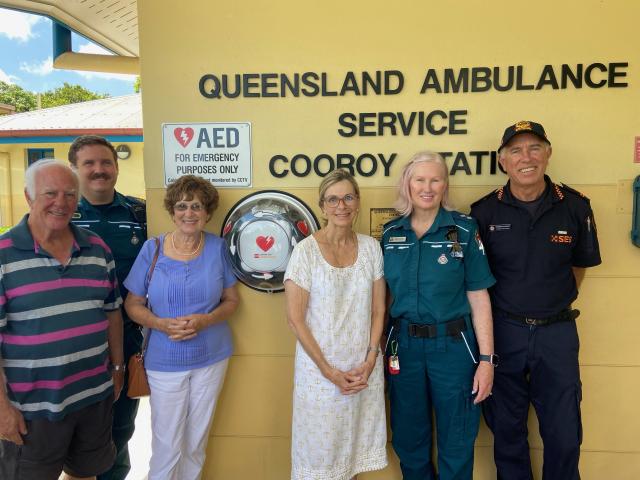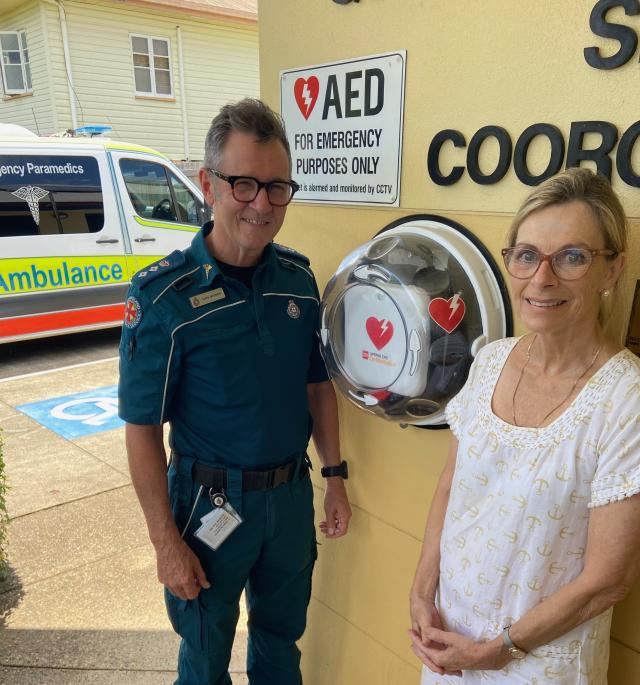After the 2022 floods, the Cooroy and District Local Ambulance Committee (LAC) looked at options to enhance community resilience and found an opportunity to provide community access to Automated External Defibrillators (AEDs).
A new policy was developed between the LAC and the QAS where they can donate an AED for affixing on the outside of the ambulance station, with the QAS committing to the ongoing servicing and maintenance of the AEDs.
After community feedback, the LAC decided the first two stations to receive the AEDs would be Cooroy and Pomona due to their location within the townships and the challenges around accessibility concerns when it’s flooding.
While meeting at the Cooroy Ambulance Station on Thursday 8 December, QAS Clinical Director Tony Hucker said public access to defibrillators meant more lives being saved.
“This is a fantastic initiative by the Cooroy and District Local Ambulance Committee. It just demonstrates what commitment they have to recovery and survival,” Mr Hucker said.
“I want to make it very clear that in order for us to actually save more lives from cardiac arrest, we need to have more AEDs in the community and more people trained in CPR. There is no doubt that if you get access to someone that is trained in CPR and there is an AED close by, your survival is very good compared to the other option.
“Australia has events every year, whether it be floods, fires, or some sort of disaster, and having communities that get cut off make it more challenging to provide emergency services. This is one of the reasons why we need communities with AEDs, because it doesn’t matter if you’re cut off, at least you’ll have access to an AED.”
Mr Hucker said it was important to remember that most cardiac arrests occur in homes.
“Having it outside an ambulance station like this is really good as the community can see it,” he said.
“We need community groups like LACs and others to work out ways to have AEDs in local streets. It might be where the phone box is, or where the post office is, or the power poles in the middle of the street…”
He said the first action a person should take when they find someone in need was to call emergency services.
“Triple 000 is the priority because they will talk you through how to do CPR, so you get immediate support when you make that call,” Mr Hucker said.
“They will ask about AEDs in the community, and in the future we will hopefully know about AEDs as well, so we can direct you to them.
“AEDs are absolutely simple to use. You don’t need to have any training to be able to use them. You just need to find the on button and it will tell you what to do.
“It will only shock you if you need a shock, they’re very sophisticated and clever. They’re easy to carry. No-one should be afraid if they don’t have first aid training. But I would encourage everyone to get CPR training.”










